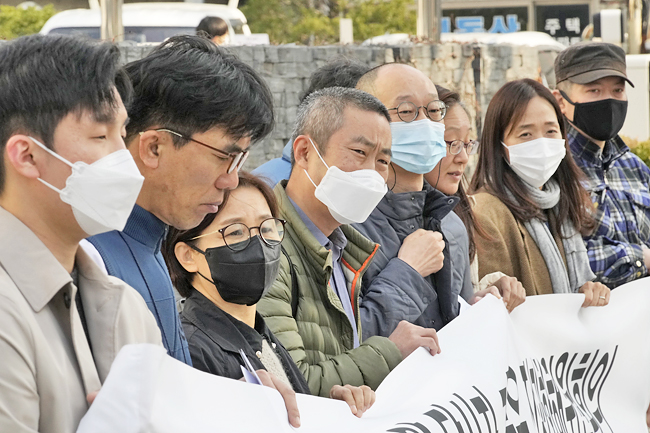SEOUL, SOUTH KOREA (AP) – Nearly 400 South Koreans adopted as children by families in the West have requested South Korea’s Truth and Reconciliation Commission investigate their adoptions through yesterday’s application deadline, as Seoul faces growing pressure to reckon with a child export frenzy driven by dictatorships that ruled the country until the 1980s.
The commission on Thursday said it decided to investigate 34 cases among the 51 adoptees who first submitted their applications in August, which could develop into the country’s most far-reaching inquiry into foreign adoptions yet.
A total of 63 adoptees from the United States (US) , Europe and Australia submitted applications to the commission yesterday, claiming their adoptions were marred by falsified documents that laundered child statuses or identities as agencies raced to send thousands of children abroad each year.
The adoptees accused agencies of fabricating documents to ensure their adaptabilities, such as falsely registering them as orphans when they had living relatives or switching their identities with other children, which have resulted in lost connections or false reunions with birth relatives.
Similar issues have been raised by many of the 306 adoptees who previously submitted applications in past months, as they called for the commission to pressure agencies into fully opening their documents and to establish whether the government was responsible for the corrupt practices.

Most of the applications were filed through the Danish Korean Rights Group, led by adoptee attorney Peter Møller, who during a news conference yesterday called for South Korean officials to take active steps to prevent agencies from concealing or destroying records.
“It’s a big, great concern because now the clock is ticking,” Møller said. “They are going to do the investigation, either taking 30 or 50 (cases) at a time … and we have great concern (agencies) will … hide the documents.”
The commission’s officials said the investigation will almost certainly widen as it believes the evidence is clear that adoptions were facilitated through falsified documents that laundered child statuses or identities.
The commission will review whether to accept the applications received after August in the coming months and may fuse the cases it sees as similar to speed up the inquiry. The 34 adoptees whose cases were accepted by the commission had been placed through Holt Children’s Services and the Korea Social Service.
The commission’s investigation would also eventually include the Eastern Social Welfare Society and Korea Welfare Services if it accepts the cases submitted yesterday by adoptees in the United States, Australia and Sweden.
Representative of a group of adoptees sent to the US and Australia through Eastern Jasmine Healey said it has been common for Eastern adoptees to discover they were made into fake “paper orphans” by the agency to facilitate their adoptions overseas.
There were also cases where Eastern supposedly deceived the adoptees’ biological families, who never gave consent to their adoptions, or adoptees growing up with the identities of another child, which has led to some being reunited with the wrong family.







